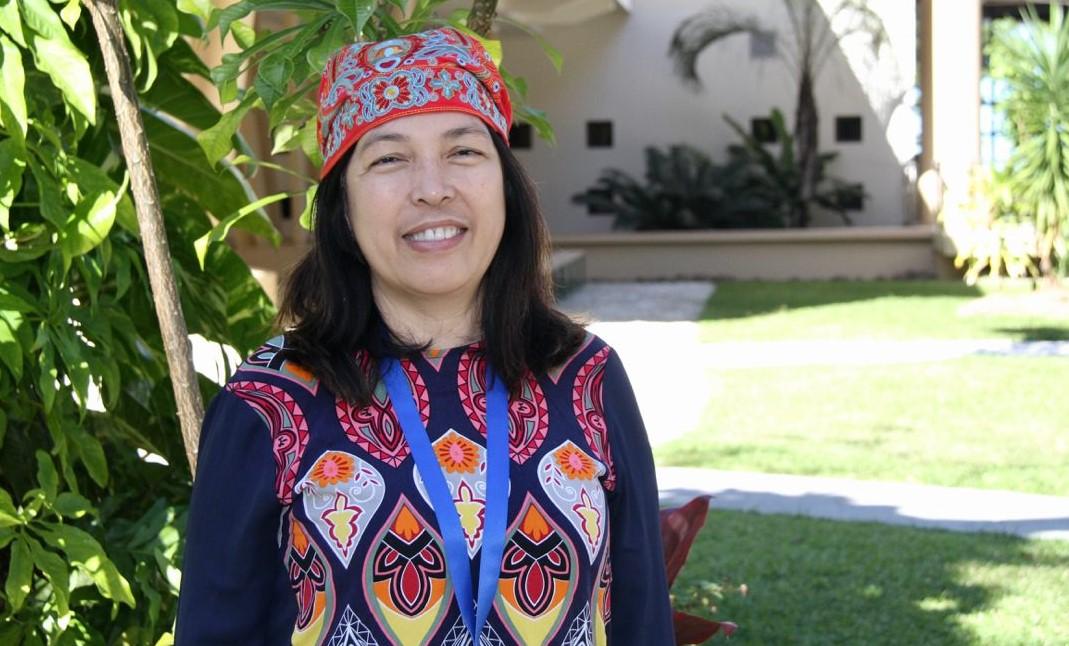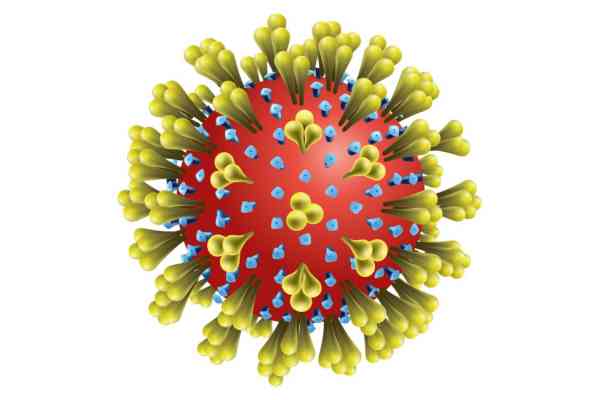The COVID-19 pandemic led to abrupt closure of borders, leaving many people on mission stranded abroad, far from their loved ones. Several Pacific Community (SPC) staff members have experienced such a difficult situation. Jocelyn Cabarles, an epidemiologist working with the Public Health Division in New Caledonia, shares her personal COVID-19 story.
***
When everything started, I was in Kiribati with my team to run a “data for decision-making” training - a weeklong training aimed at helping government's health officials deal with outbreak investigation and management.
On the first day (16 March) of the training, we received an email from our team leader, advising that all staff on mission should return to base as soon as possible due to an increasing number of COVID-19 cases in the Pacific. Flights into Kiribati are twice a week, and we were directed to return to base on the next flight, which was scheduled 3 days later.
This would give us three days, during which we would have the opportunity to modify the training, condensing some of the activities to focus on what we considered essential: outbreak investigation and management, risk communication, writing a situational report and infection prevention and control measures. We also added a specific COVID-19 simulation exercise, to help authorities prepare for potential imported cases in the country.
Three days later, we flew to Fiji, from where I was supposed to take my flight to New Caledonia.
***
It was when I arrived in Nadi (Fiji) that I really became aware of the scale of the crisis. Fiji had just detected its first case, and there was a lot of agitation at the airport. People were trying to change their flights, while staring at their phones, looking for the latest updates on border closings.
Later that day, I was told to stay in Nadi and fly to New Caledonia through Vanuatu on Sunday. In order to get on the flight, I needed a medical certificate stating that I was healthy and had no COVID symptoms. I got that done the next day, but while I was calmly preparing for my trip to Noumea, I received a call from my team leader informing me of the closing of New Caledonia’s borders. He asked me to go to the SPC offices in Suva, where I would work temporarily, while waiting for the situation to improve.
For the first time, I felt very anxious. I thought I was mentally prepared for the possibility of being stranded somewhere, but there is a big difference between theory and practice. What worried me most was not knowing when I would see my family again.
On Easter Monday, almost a month after I was stationed in Suva, I was told that there is a repatriation flight for New Caledonia. I was really excited and then suddenly Suva was on lockdown which meant I could not leave Suva to board this flight. This is when I cried for the very first time because I felt so frustrated. There were two more cancellations of repatriation flight after this. I think I really became better in handling such frustrating situations (no more crying)!
***
I am fortunate to be employed by SPC – the support I received from the organization during these challenging professional and personal times was constant. My Suva-based Public Health colleagues helped me go through this phase of uncertainty and showed me acceptance, compassion and friendship. During the 11 weeks I eventually spent in Suva, my colleagues kept asking me how I was feeling. They were often bringing me food, inviting me at their place – in fact, doing everything they could to make me feel that I was not alone. I will never forget that.
Work also kept me very busy during that period. SPC is heavily involved in the response to COVID-19 in the Pacific, and I didn’t really have to think too much of my own situation. Getting used to remote working was a bit challenging, but SPC quickly adopted new working methods in order to remain fully effective despite the challenges caused by the pandemic. The work in the epidemiology and surveillance cell for the Joint Incident Management Team (JIMT) for COVID-19 in which I was able to participate helped me continue to do my work to the best of my abilities, despite the difficulties.
***
On 7th June, I received a last-minute notification that there is another repatriation flight heading to New Caledonia. But because I was in Fiji for an extended period, I had just submitted my passport to get my work visa extended. Adding to my anxiety I had to try getting my passport back before the repatriation flight, which was leaving Fiji the next day.
Thankfully, I managed to complete necessary paperwork, and the authorities were really supportive. On 8th June, I was at the airport, with my passport in hand.
When I entered the departure lounge, I felt relief and informed my colleagues that I was finally leaving and about to board the aircraft. The local company did a really good job with organizing the plane in different sections, in order to respect the social distancing measures.
I was really happy and excited to be going home. I did a 14-day quarantine when I arrived into New Caledonia. I was also tested for COVID-19 before I left the facility.
And then it was over. Two months and nineteen days: it seems a lot, but it was much easier for me than for many people around the world who were not as lucky as I was to have supportive colleagues and supervisors.
I think the mutual support that we can receive and offer to others in these types of situations is what makes the difference. The support I received when I was stranded away from home in Fiji allowed me to continue working with confidence, while keeping spirits up. I am now back in my duty station, determined to continue doing my best to support health programmes across the Pacific!


